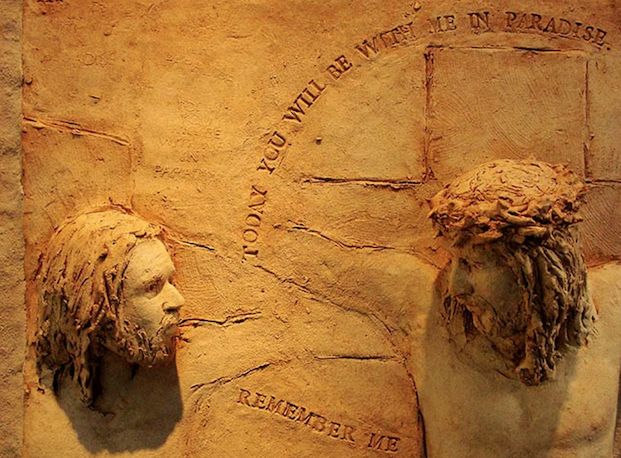Easter Without Good Friday
I'm sure you're familiar with the phrase, "Sunday is coming!" It has become a popular saying in the church in recent years, often associated with Easter. "It's Friday, but Sunday is coming!"
While the sentiment is appreciated, it's imperative for us to not overlook the significance of Good Friday.
To illustrate this, think of the symbolism of a cancer patient "ringing the bell" at the oncologist's office, signifying the end of a long and difficult cancer treatment journey. The celebratory act of ringing the bell wouldn't hold any significance without the challenging and painful experience of treatment; the ringing of the bell essentially proclaims that the treatment is over, done, and complete.

Easter Sunday is a core Christian belief; it signifies Jesus' resurrection, proving His divinity and victory over death (Romans 6:4; 14:9).
However, to reach Sunday, we must first acknowledge Friday. Jesus' death and burial hold their own meaning, and understanding that is crucial to fully appreciating the Easter message.
Jesus did what he needed to do - not for Himself, but rather for us. Only us. Consider this powerful prophetic scripture from the eighth century BC. Although it is indeed eloquent, it is full of significant truth.
But he was pierced for our transgressions;
he was crushed for our iniquities;
upon him was the chastisement that brought us peace,
and with his wounds we are healed.
All we like sheep have gone astray;
we have turned – every one – to his own way;
and the LORD has laid on him
the iniquity of us all. - Isaiah 53:5-6
Pause with me and consider the descriptive words: pierced, crushed, chastised, and not to mention wounded.
As we all gather in our church homes on Good Friday to “celebrate” the piercing, let's likewise look forward to the healing, and prepare to ring the bell of salvation on Sunday morning!
All Murder and Violence and No Donuts
I am a Pastor at a Lutheran church in Florida. Every year we have a tenebrae service on Good Friday. We incorporate some contemplative and somber elements into the service to reflect on the sacrifice of Christ on the cross. We end the service with a silent video clip from an edited black and white version of "Passion of the Christ" while someone sings "Jesus Paid it All" quietly in the background. Then we walk out of the sanctuary in darkness and silence.
Last year, after the service was over I asked an 8 year old girl what she thought of it. She said, "All murder and violence and no donuts." Reflecting back on the service I understand what she meant. The service was lacking the usually celebratory tone that the Sunday morning services offer, and yes, it was lacking donuts.

The word tenebrae actually means darkness. It seems strange that "Good" Friday would be full of darkness.
In order to come to a greater appreciation for the passion of Christ, we have to take a graphic look at the price He paid for us. Things looked pretty bleak for the disciples after the sun went down the day Jesus died. I can only imagine that what they were feeling at the time was probubly pretty dark, too -- hopelessness, despair, and shame.
Participating in the darkness, I think, lets us remember the despair we would all feel without the cross. Our sin would separate us from God for eternity without it, without Jesus. Fully experiencing the darkness without Jesus on Good Friday lets us fully experience the joy of the resurrection on Sunday. When we have a greater appreciation for the cross, worship is a celebration every Sunday, all year long, and even donuts become part of the joy we have in Christ.
Faith In A Dying Savior
I have always been drawn to the thief on the cross and to Jesus' compassionate response to him. The thief knew he didn't deserve paradise, yet Jesus promised it to him simply because he asked. It's a beautiful picture of the simplicity of grace.

This scene also provides us with perhaps the greatest example of faith in the pages of Scripture. Think about it. The thief placed his complete confidence in Jesus at His worst moment, while Christ was defeated and dying. How does a person put their confidence in a Messiah who is hanging condemned and forsaken on the cross right next to them?
This puts our own call to faith in perspective. How do we respond when life makes no sense and God seems distant and everything seems out of control? The thief believed in a dying Jesus. Can you, at those times, believe in a rising one?
"Then he said, 'Jesus, remember me when you come into your kingdom.' Jesus answered him, 'Truly I tell you, today you will be with me in paradise'" (Luke 23:42-43).